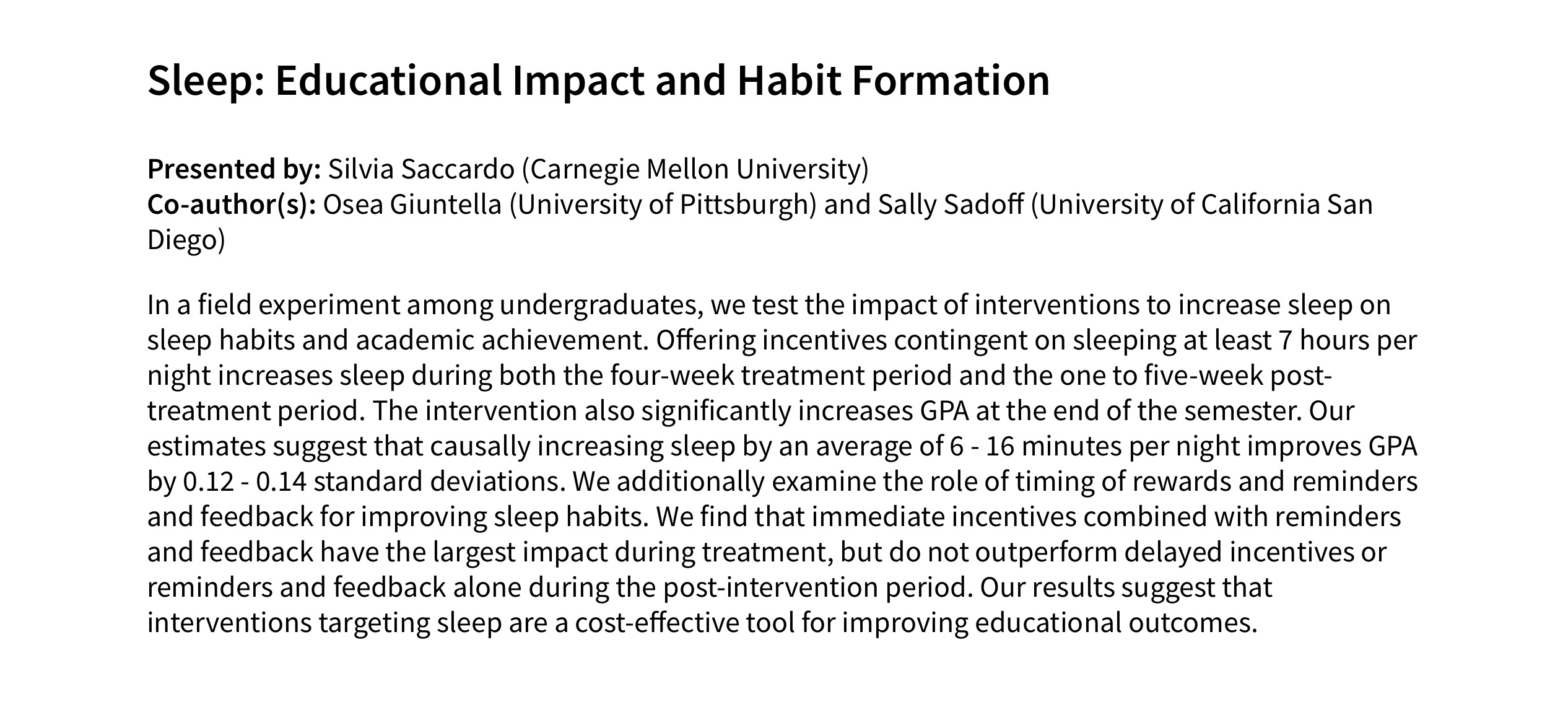Yesterday, I had lunch with two professors from my department, and our conversation veered towards a recent talk on behavior I had listened to last month. (We were lamenting the state of undergraduate classes and student behavior, so I guess that’s why.)

the talk and the paper. screenshot taken from SITE 2023 website.
It’s so interesting to recall that the conference actually began with this very talk about sleep, at 9:30 in the morning when literally no one was awake. It was quite entertaining, probably because the room was filled with researchers who had likely endured the sleep-deprived life of undergraduates before earning their spots in elite university Ph.D. programs.
The research idea was brilliant: offering a monetary incentive to students who managed to achieve their coveted 7-hour sleep target. As someone who wears an Apple Watch, I can relate to how effective these small nudges can be. To the extent that nowadays, even during long library sessions, I occasionally shake my arm (in my chair) to meet my daily standing goals.
The concept is similar for sleep incentives. Providing a financial reward right after waking up is akin to Pavlov ringing a bell before feeding his dog—a form of positive reinforcement that associates “sleep” with both material and psychological satisfaction. Once this connection is established, students are more likely to view sufficient sleep as a source of monetary or psychological satisfaction and, eventually, develop healthier sleeping habits.
The impact is undeniably positive, which is not surprising. What I believe is significant, but the research didn’t delve into, is the magnitude of the internal utility increase resulting from this monetary reward system. For instance, how substantial is the impact? Did students merely gain an extra 10 minutes of sleep, or did they become willing to sacrifice some social activities in pursuit of more sleep, despite the positive utility associated with those activities? Can we quantify this change in some way, such as through alterations in behavior and schedules, revealed preferences, or quantifying opportunity cost associated with various time management strategies?
Lastly, something amusing cropped up when I mentioned this research to one of the professors—a brilliant theorist who earned a math BS from Peking University, who views the problem in a distinct perspective. He immediately asked, “Why wouldn’t students try to hack the system?”
My response was, “Why would they? How could someone hack a wristband’s sleep recording system?”
His counterargument was intriguing:
“Consider this: for the group receiving monetary rewards, all you need is one friend who sleeps well and is willing to wear ten more sleep monitors on their arm for everyone else. And, they could even take turns…”